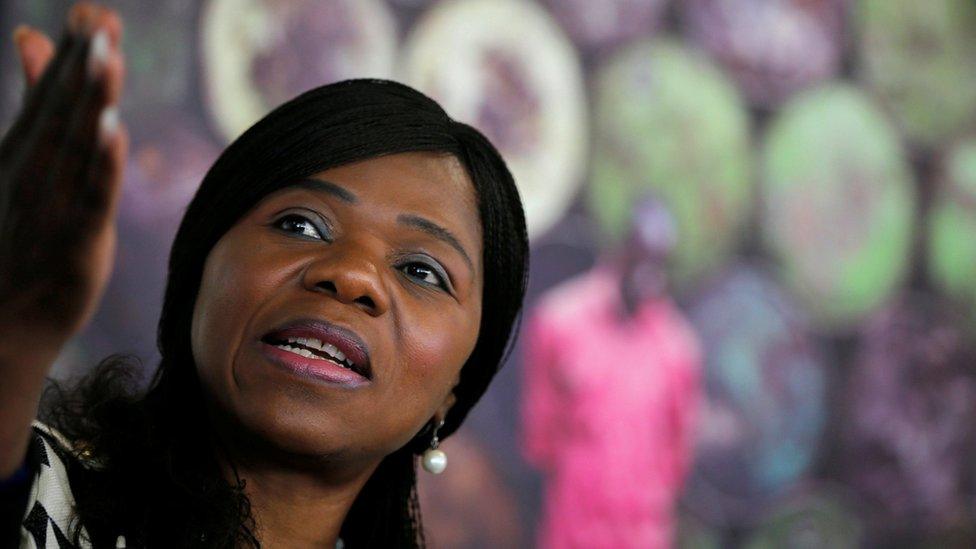Profile: South Africa's Kgalema Motlanthe
- Published
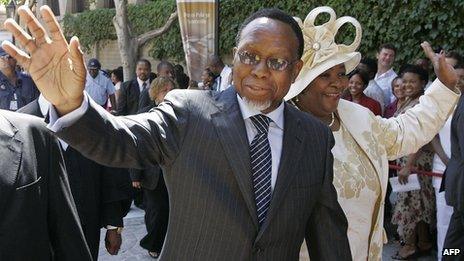
Kgalema Motlanthe has already served as South Africa's president, if only for six months, and is now seeking to return on a long-term basis.
The ruling African National Congress (ANC) will decide at its five-day conference starting on Saturday whether to retain incumbent Jacob Zuma and Mr Motlanthe is the only person who can challenge him.
He served as Mr Zuma's stand-in for six months in 2009 after then-President Thabo Mbeki was recalled from the position.
At the time, analysts said the ANC had chosen him as interim president because he was a safe bet.
But today's Mr Motlanthe is not as easy to dismiss.
During the ANC's leadership nominations in preparation for the party's elective conference in Mangaung, Mr Motlanthe was the only person nominated to replace Mr Zuma - a sign of the respect he commands in sections of the party.
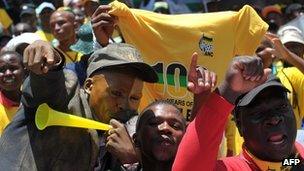
The ANC has already sacked one president- will it now sack another?
The man had his first taste of the presidency during the ANC's most tumultuous period in post-apartheid South Africa - the recalling of Mr Mbeki in 2008, external, a first in the country's history.
The ANC believed that Mr Motlanthe would not only bring unity and stability, but that he would not try to swindle Mr Zuma out of the top job.
Mr Motlanthe acted as caretaker president, external until the 2009 election, when - as expected - he handed power to Mr Zuma.
Son of a miner
At school, Mr Motlanthe was influenced by the ideologies of the Black Consciousness Movement and the late anti-apartheid campaigner Steve Biko.
He cut his political teeth in the National Union of Mineworkers (NUM) where he was tasked with strengthening the trade union and where he worked from 1987 after serving 10 years on Robben Island - where Nelson Mandela was also imprisoned.
During Mr Mandela's hospitalisation in January 2011, Mr Motlanthe immediately assumed a leadership role during the government's chaotic handling of the former president's admission into a Johannesburg private hospital.
Mr Mandela called him by his old prison name Mokgomane, a word in the local Pedi language which means "my boy".
Mr Motlanthe had been sent to jail for his activism a year after the 1976 Soweto uprising, when black students fought against the policy of forcing them to learn in Afrikaans.
During his NUM years, Mr Motlanthe, whose father was a miner, was involved in training workers to form shop steward committees, among other things.
In 1992 he was instrumental in negotiating favourable salaries for workers at a time when the gold industry was not flourishing and some companies were even closing down mines.
This deal helped to avert massive retrenchments in the sector.
As a former unionist, Mr Motlanthe has a thorough understanding of the intricate issues which fuelled the protests in the mining sector, including the tragedy which led to the killings of 34 miners in a bloody clash with the police in Marikana in August, correspondents say.
A total of 46 people were killed during the six-week-long Marikana protests.
'Elder brother'
His political rise has been slow but sure.
In 1997, he became ANC secretary-general and served two terms in this position and 10 years later he was elected as the ruling party's deputy president.
Affectionately known as "mkhuluwa", which means elder brother in the Zulu language, he is well respected within the ANC.
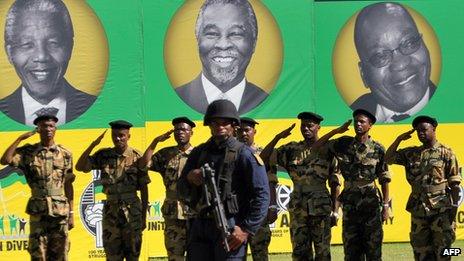
The ANC has so far had three leaders in democratic South Africa - Nelson Mandela, Thabo Mbeki and Jacob Zuma
According to South Africa's Business Day paper, he is regarded by many "as the glue that holds the tripartite alliance [ANC, South African Communist Party and trade union federation Cosatu] together".
Usually smartly dressed in a blazer and tailored trousers, the 63-year-old has maintained a low public profile.
Little is known about his personal life but a book about him has recently been published by Ebrahim Harvey called Kgalema Motlanthe: A political biography.
It is an authorised biography and gives insight into who he is.
Mr Harvey refers to the deputy president by his first name throughout the book and tells of how he forgave his wife after she got pregnant with another man's daughter while he was on Robben Island.
The marriage broke down years later.
Accountability
Mr Harvey's book also speaks of how Mr Motlanthe saved President Zuma from expulsion from the ANC after reports of his alleged corruption - he instead defended the ANC's decision to back Mr Zuma in his battle against the charges.
During the bitter dispute over the corruption case, then ANC Youth League leader Julius Malema said he was prepared to kill for Mr Zuma.
Mr Zuma's supporters said they would organise huge protests outside the court, which some saw as an attempt to intimidate the judge hearing the case.
It was Mr Motlanthe who urged the Youth League to respect the judiciary, earning the respect of many in the country.
In March, accusations were made against Mr Motlanthe's long-term partner Gugu Mtshali.
Ms Mtshali is elegant, well-travelled, educated and poised - some have commented that she is First Lady material.
However, she sits on numerous boards, some say too many, representing a wide range of companies and Mr Motlanthe's allies worry that her business dealings could tarnish his reputation.
South Africa's The Sunday Times newspaper reported that Ms Mtshali was "implicated in soliciting a 104 million rand ($12m; £7m) bribe to obtain a sanctions-busting deal with Iran".
Mr Motlanthe asked Public Protector Thuli Madonsela, who plays a role similar to that of an ombudsman, to investigate the allegations and she cleared the couple of wrongdoing.
Mr Motlanthe's allies say his prompt action showed his commitment to accountability - in contrast to Mr Zuma, who has been accused of not doing enough to tackle corruption during his three years in power.
- Published6 April 2018
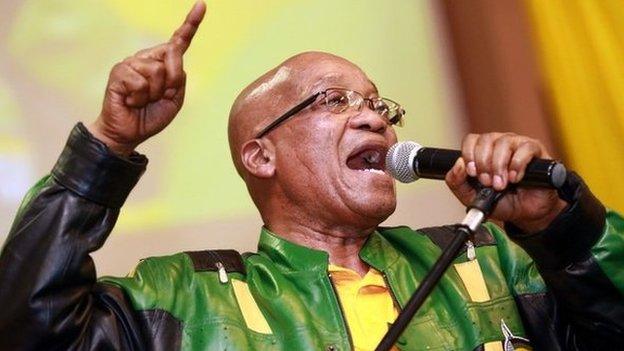
- Published4 October 2012
- Published12 September 2012
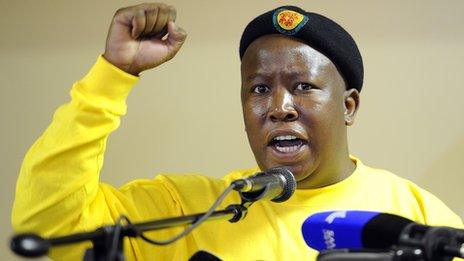
- Published13 March 2012

- Published3 October 2012
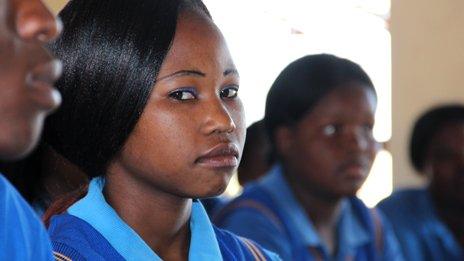
- Published14 October 2016
